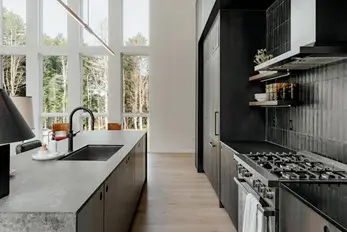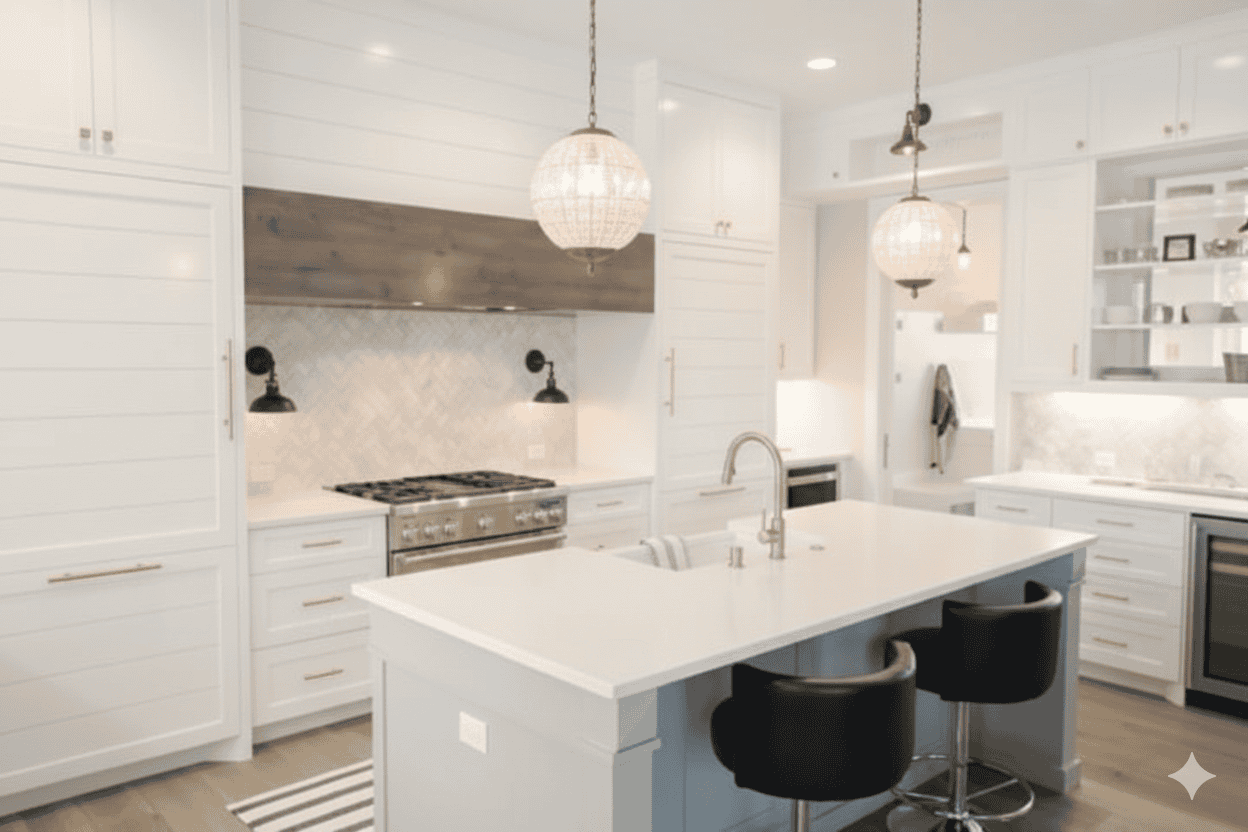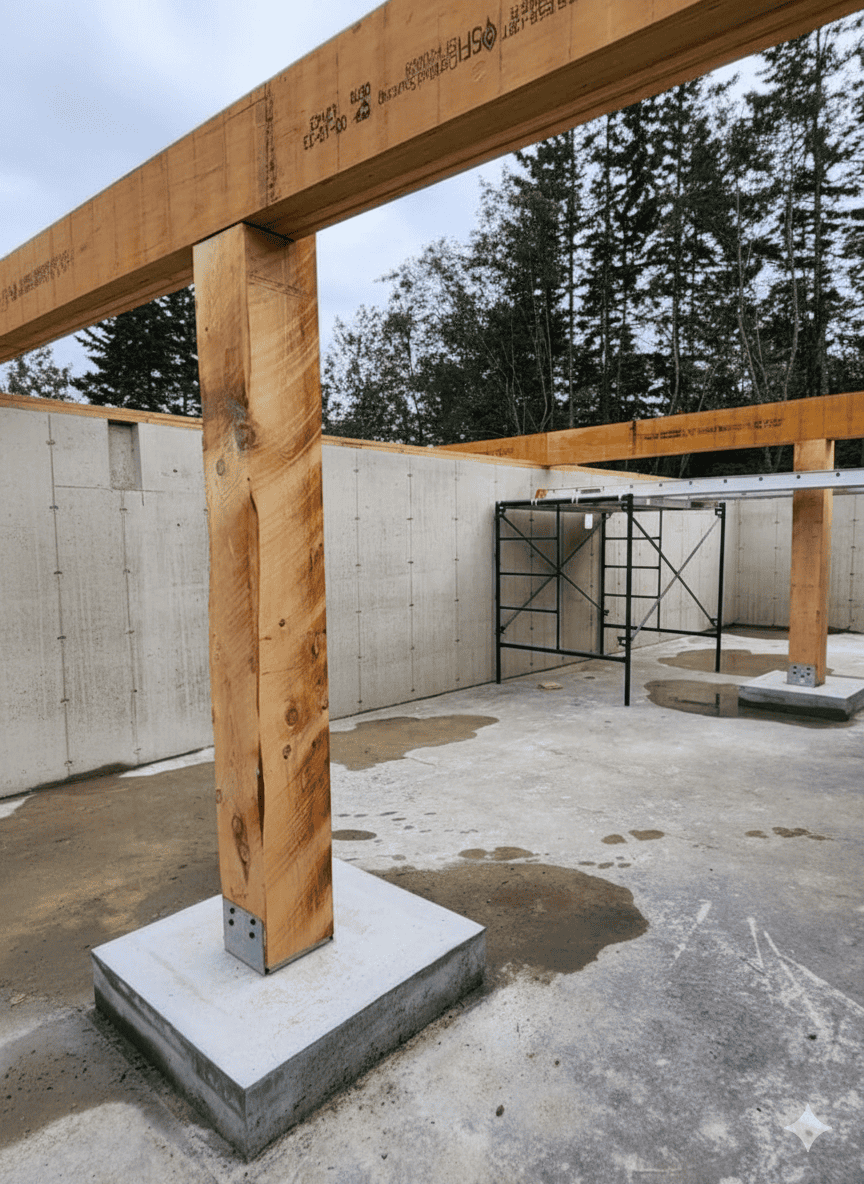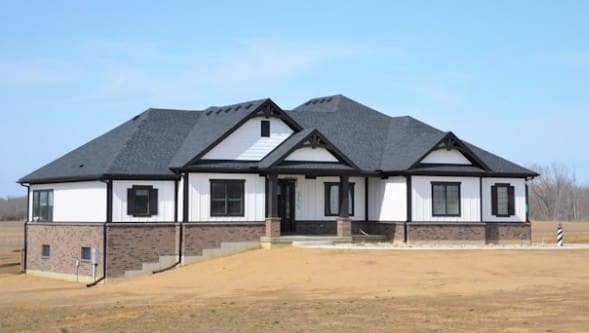Designing a custom home is an exciting journey, and partnering with experienced contractors can make the process both seamless and rewarding. A custom home should be a true reflection of your lifestyle, personal tastes, and vision for the future. Whether you’re starting from scratch or transforming an existing property, collaborating with home builders in Maine ensures that every detail aligns with your unique needs and desires.
This article will delve into the essential factors to consider when designing a home, from the initial planning phase to the finishing touches. With the right approach and expert guidance, your new home will be not only stunning but also functional, sustainable, and built to stand the test of time.
Budget Planning and Financial Flexibility
Before embarking on the design process or planning renovations, one of the most critical initial steps is setting a clear and realistic budget. Whether you’re breaking ground or upgrading an existing home, a well-defined budget ensures you can incorporate desired features while staying financially grounded. Your budget will influence every aspect of the project, from the overall size of the home to the materials and finishes you select, helping to guide decisions and prioritize needs.
Establishing a clear and detailed budget is essential when planning your project. Be sure to factor in all potential expenses, including construction costs, permits, fees, landscaping, and interior design. It’s also wise to plan for contingencies by setting aside a portion of your budget for unexpected costs that may arise during the process. To ensure you’re financially prepared, consider working with a financial advisor or mortgage lender to explore the options available to you. They can help you understand loan types, financing structures, and strategies to keep your project on track.
Location and Orientation
The location and orientation of your home will greatly affect your overall design. The lot you choose should not only accommodate your vision but also be suitable for your lifestyle. Factors like views, privacy, climate, and proximity to amenities can all influence the design of your home. For instance, if you have a property with stunning views, positioning your home to capture these vistas can make a huge difference in the overall ambiance.
When designing a new home, several factors should be considered to create a functional and efficient living space. The size and shape of the lot play a critical role, as the property must accommodate your desired square footage, outdoor features like a pool or garden, and any special design elements.
Orientation is equally important, as positioning your home to maximize natural light, views, and wind patterns can significantly reduce energy costs. Incorporating passive solar design into your plans can further enhance energy efficiency, using strategic window placement and materials to naturally heat and cool your home.
Floor Plan and Layout
The floor plan is the foundation of new construction homes in Maine and plays a crucial role in defining how your space functions. When designing your layout, consider how each room connects and how you’ll use each space daily. Open floor plans are a popular choice for creating a sense of flow and spaciousness, but it’s equally important to ensure that each area is thoughtfully designed to serve a specific purpose and meet your lifestyle needs.
Natural Light and Ventilation
Proper natural light and ventilation are key elements in creating a comfortable and healthy home. Bright, airy spaces with plenty of natural light not only enhance the aesthetic appeal but can also improve your well-being. Additionally, good ventilation is essential for maintaining indoor air quality and comfort.

Smart Home Features
Smart home technology is becoming a staple in modern design. These features can make your home more convenient, secure, and energy efficient. From controlling lighting to monitoring security systems, the possibilities are endless.
Popular smart features are becoming essential in modern home design, offering convenience, energy efficiency, and enhanced security. Smart lighting systems allow you to control lighting levels, color temperature, and scheduling through smartphone apps or voice commands, providing both ambiance and efficiency. For added peace of mind, smart security systems like cameras, doorbell cameras, and motion sensors can be monitored remotely, ensuring your home is always secure. Climate control is also made easier with smart thermostats, which automatically adjust the temperature based on your preferences, helping to save money on heating and cooling while maintaining comfort.
Quality Materials and Finishes
The materials and finishes you select for your custom home play a significant role in both the aesthetics and functionality of your space. While it’s important to choose materials that match your personal style, you should also prioritize long-term durability and ease of maintenance.
For high-traffic areas, durable options like hardwood, tile, or bamboo are ideal choices, as they are both sturdy and easy to maintain. In private spaces like bedrooms, soft materials such as carpets or area rugs can provide additional comfort. For countertops, materials like granite, marble, or quartz are popular due to their elegant appearance and functionality in kitchens and bathrooms. When considering exterior finishes, opt for low-maintenance and weather-resistant materials such as fiber-cement, brick, or stone, which will ensure your home’s longevity while maintaining its visual appeal.
Outdoor Living
Another essential aspect of custom home design is creating outdoor living spaces that extend your home’s functionality. Outdoor areas can offer additional space for relaxation, entertainment, and recreation, enhancing your lifestyle. Building a deck or patio can create a perfect outdoor dining or lounging area, serving as a focal point for social gatherings.
Landscaping is another great way to enhance your outdoor living, whether by adding lush gardens, a pool, or an outdoor kitchen. To make the most of outdoor spaces, consider incorporating lighting for evening ambiance and heaters to ensure comfort during cooler evenings.
Storage
Storage solutions are also crucial in maintaining an organized and clutter-free home. Custom homes should include ample storage options throughout the property. Walk-in closets are perfect for organizing clothing and accessories, while kitchen pantries and utility cabinets can store food, cleaning supplies, and tools. Additionally, utilizing spaces such as basements or attics for seasonal items and infrequently used belongings can maximize storage potential, keeping your home neat and organized.
An Opportunity for Personalization
Finally, a custom home offers the opportunity to add personal touches and unique features that reflect your personality and lifestyle. Whether through a dedicated home office with built-in desks and shelving or hobby rooms designed for activities like painting or music, these personalized spaces allow you to tailor your home to your interests. Collaborating with designers to create custom furniture pieces or unique architectural elements, such as bespoke cabinetry or light fixtures, adds a personal flair to your home, making it a one-of-a-kind living space.
Conclusion
Designing your custom dream home is a monumental endeavor that requires thoughtful planning, creativity, and attention to detail. By considering key features such as functionality, energy efficiency, layout, and sustainability, you can create a home that perfectly aligns with your lifestyle. Ultimately, your dream home should be a place that supports your personal needs, celebrates your tastes, and provides comfort for years to come. With the right vision, you can turn your dream home into a reality.



